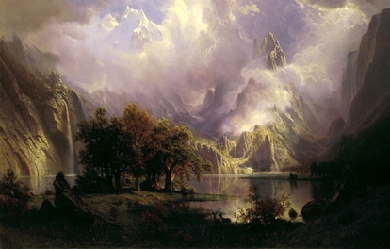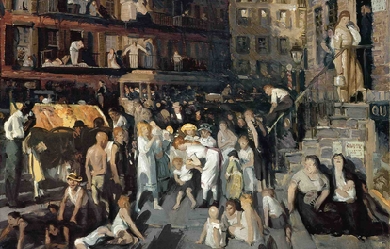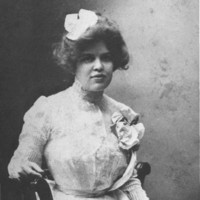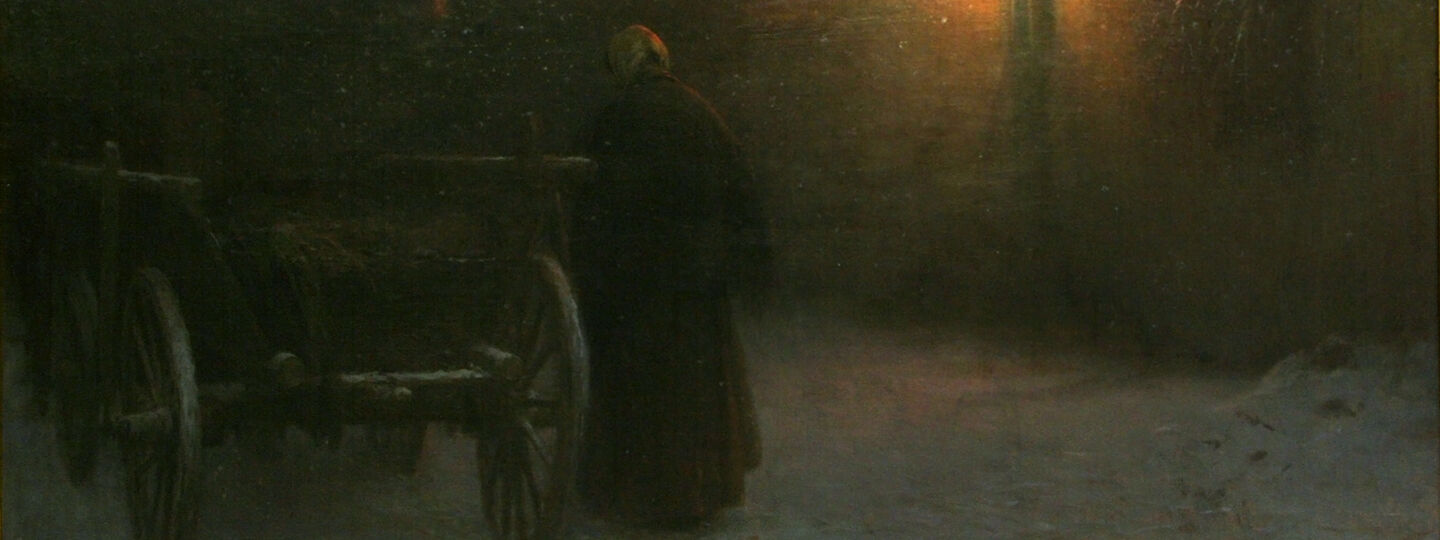
Info
Snow (Twilight in Winter)
Jakub Schikaneder
1899
National Gallery Prague
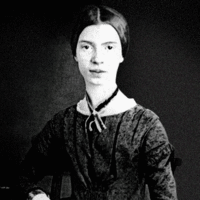
Emily Elizabeth Dickinson (December 10, 1830 – May 15, 1886) was an American poet. Little-known during her life, she has since been regarded as one of the most important figures in American poetry. Evidence suggests that Dickinson lived much of her life in isolation. Considered an eccentric by locals, she developed a penchant for white clothing and was known for her reluctance to greet guests or, later in life, to even leave her bedroom. Dickinson never married, and most friendships between her and others depended entirely upon correspondence.
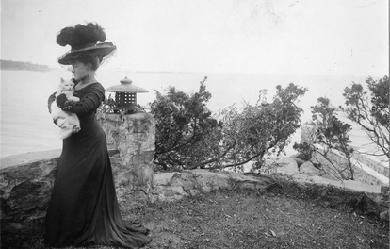
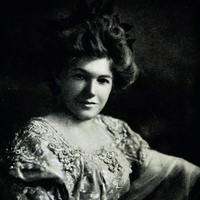
Ella Wheeler Wilcox (November 5, 1850 – October 30, 1919) was an American author and poet. Her best-known work was Poems of Passion. Her most enduring work was “Solitude”, which contains the lines, “Laugh, and the world laughs with you; weep, and you weep alone”. Her autobiography, The Worlds and I, was published in 1918, a year before her death. Ella was born on a farm in Johnstown, Wisconsin, east of Janesville, the youngest of four children. The family soon moved north of Madison. She started writing poetry at a very early age, and was well known as a poet in her own state by the time she graduated from high school. Her most famous poem, “Solitude”, was first published in the February 25, 1883 issue of The New York Sun. The inspiration for the poem came as she was travelling to attend the Governor’s inaugural ball in Madison, Wisconsin. On her way to the celebration, there was a young woman dressed in black sitting across the aisle from her. The woman was crying. Miss Wheeler sat next to her and sought to comfort her for the rest of the journey. When they arrived, the poet was so depressed that she could barely attend the scheduled festivities. As she looked at her own radiant face in the mirror, she suddenly recalled the sorrowful widow. It was at that moment that she wrote the opening lines of “Solitude”: Laugh, and the world laughs with you; Weep, and you weep alone. For the sad old earth must borrow its mirth But has trouble enough of its own
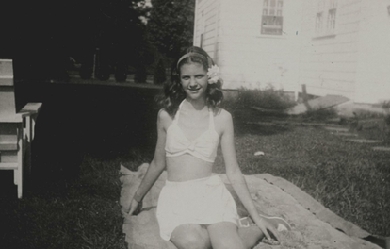
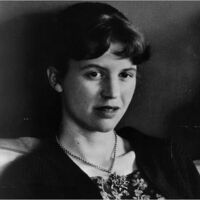
Sylvia Plath (October 27, 1932 – February 11, 1963) was an American poet, novelist and short story writer. Born in Boston, Massachusetts, she studied at Smith College and Newnham College, Cambridge before receiving acclaim as a professional poet and writer. She married fellow poet Ted Hughes in 1956 and they lived together first in the United States and then England, having two children together: Frieda and Nicholas. Following a long struggle with depression and a marital separation, Plath committed suicide in 1963. Controversy continues to surround the events of her life and death, as well as her writing and legacy. Plath is credited with advancing the genre of confessional poetry and is best known for her two published collections: The Colossus and Other Poems and Ariel. In 1982, she became the first poet to win a Pulitzer Prize posthumously, for The Collected Poems. She also wrote The Bell Jar, a semi-autobiographical novel published shortly before her death.

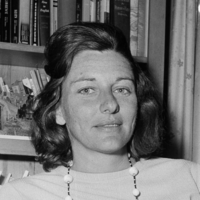
Anne Sexton (November 9, 1928, Newton, Massachusetts – October 4, 1974, Weston, Massachusetts) was an American poetese, known for her highly personal, confessional verse. She won the Pulitzer Prize for poetry in 1967. Themes of her poetry include her suicidal tendencies, long battle against depression and various intimate details from her private life, including her relationships with her husband and children. Sexton suffered from severe mental illness for much of her life, her first manic episode taking place in 1954.
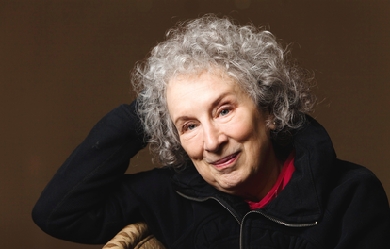
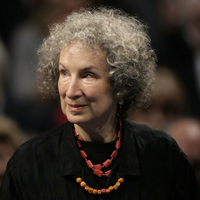
Margaret Eleanor Atwood (born November 18, 1939) is a Canadian poet, novelist, literary critic, essayist, teacher, environmental activist, and inventor. Since 1961, she has published 18 books of poetry, 18 novels, 11 books of non-fiction, nine collections of short fiction, eight children's books, and two graphic novels, and a number of small press editions of both poetry and fiction. Atwood has won numerous awards and honors for her writing, including two Booker Prizes, the Arthur C. Clarke Award, the Governor General's Award, the Franz Kafka Prize, Princess of Asturias Awards, and the National Book Critics and PEN Center USA Lifetime Achievement Awards. A number of her works have been adapted for film and television.
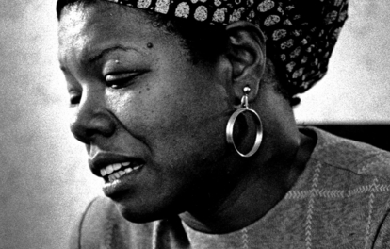
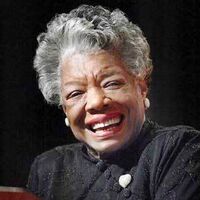
Maya Angelou (born Marguerite Ann Johnson; April 4, 1928 – May 28, 2014) was an American author and poet. She published seven autobiographies, three books of essays, and several books of poetry, and is credited with a list of plays, movies, and television shows spanning more than fifty years. She received dozens of awards and over thirty honorary doctoral degrees. Angelou is best known for her series of seven autobiographies, which focus on her childhood and early adult experiences. The first, I Know Why the Caged Bird Sings (1969), tells of her life up to the age of seventeen, and brought her international recognition and acclaim. Angelou's long list of occupations has included pimp, prostitute, night-club dancer and performer, cast-member of the musical Porgy and Bess, coordinator for Martin Luther King, Jr.'s Southern Christian Leadership Conference, author, journalist in Egypt and Ghana during the days of decolonization, and actor, writer, director, and producer of plays, movies, and public television programs.
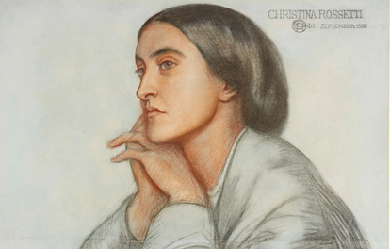
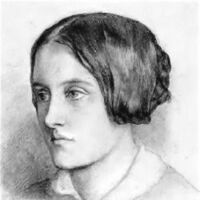
In 1830, Christina Rossetti was born in London, one of four children of Italian parents. Her father was the poet Gabriele Rossetti; her brother Dante Gabriel Rossetti also became a poet and a painter. Rossetti’s first poems were written in 1842 and printed in the private press of her grandfather. In 1850, under the pseudonym Ellen Alleyne, she contributed seven poems to the Pre-Raphaelite journal The Germ, which had been founded by her brother William Michael and his friends.


Dorothy Parker (August 22, 1893 – June 7, 1967) was an American poet, short story writer, critic and satirist, best known for her wit, wisecracks, and eye for 20th-century urban foibles. From a conflicted and unhappy childhood, Parker rose to acclaim, both for her literary output in such venues as The New Yorker and as a founding member of the Algonquin Round Table. Following the breakup of the circle, Parker traveled to Hollywood to pursue screenwriting. Her successes there, including two Academy Award nominations, were curtailed as her involvement in left-wing politics led to a place on the Hollywood blacklist. Dismissive of her own talents, she deplored her reputation as a “wisecracker”. Nevertheless, her literary output and reputation for her sharp wit have endured.
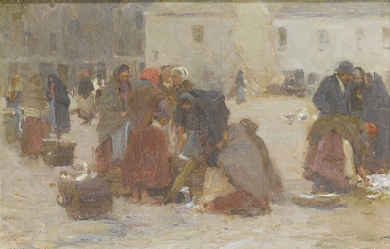
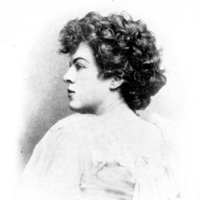
Dora Maria Sigerson Shorter (16 August 1866– 6 January 1918) was an Irish poet and sculptor, who after her marriage in 1895 wrote under the name Dora Sigerson Shorter. She was born in Dublin, Ireland, the daughter of George Sigerson, a surgeon and writer, and Hester (née Varian), also a writer. She was a major figure of the Irish Literary Revival, publishing many collections of poetry from 1893. Her friends included Katharine Tynan, Rose Kavanagh and Alice Furlong, writers and poets. In 1895 she married Clement King Shorter, an English journalist and literary critic. They lived together in London, until her death at age 51 from undisclosed causes.
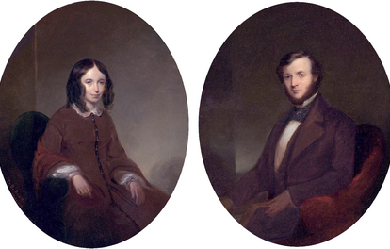
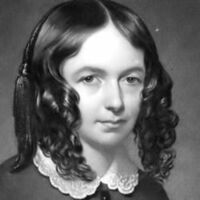
Elizabeth Barrett Browning (6 March 1806 – 29 June 1861) was one of the most prominent poets of the Victorian era. Her poetry was widely popular in both England and the United States during her lifetime. A collection of her last poems was published by her husband, Robert Browning, shortly after her death. Barrett Browning opposed slavery and published two poems highlighting the barbarity of slavers and her support for the abolitionist cause. The poems opposing slavery include "The Runaway Slave at Pilgrim's Point" and "A Curse for a Nation"; in the first she describes the experience of a slave woman who is whipped, raped, and made pregnant as she curses the slavers. She declared herself glad that the slaves were "virtually free" when the Emancipation Act abolishing slavery in British colonies was passed in 1833, despite the fact that her father believed that Abolitionism would ruin his business.

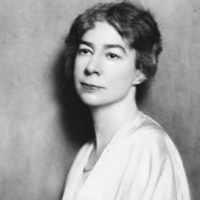
Sara Teasdale (August 8, 1884 – January 29, 1933) was an American lyric poet. She was born Sarah Trevor Teasdale in St. Louis, Missouri, and used the name Sara Teasdale Filsinger after her marriage in 1914. She had such poor health for so much of her childhood, home schooled until age 9, that it was only at age 10 that she was well enough to begin school. She started at Mary Institute in 1898, but switched to Hosmer Hall in 1899, graduating in 1903. I Shall Not Care WHEN I am dead and over me bright April Shakes out her rain-drenched hair, Tho' you should lean above me broken-hearted, I shall not care. I shall have peace, as leafy trees are peaceful When rain bends down the bough, And I shall be more silent and cold-hearted Than you are now.
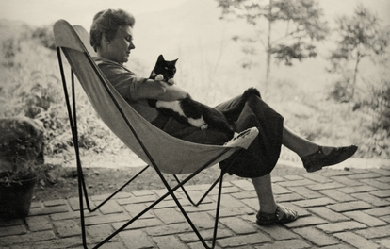
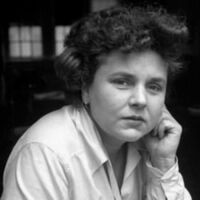
Elizabeth Bishop (February 8, 1911 – October 6, 1979) was an American poet, short-story writer, and recipient of the 1976 Neustadt International Prize for Literature. She was the Poet Laureate of the United States from 1949 to 1950, the Pulitzer Prize winner for Poetry in 1956 and the National Book Award winner in 1970.


Edna St. Vincent Millay (February 22, 1892 – October 19, 1950) was an American poet and playwright. She received the Pulitzer Prize for Poetry in 1923, the third woman to win the award for poetry, and was also known for her feminist activism. She used the pseudonym Nancy Boyd for her prose work. The poet Richard Wilbur asserted, "She wrote some of the best sonnets of the century."
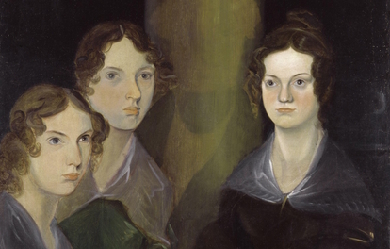
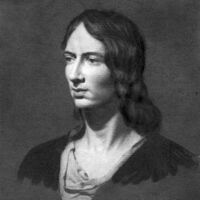
Emily Jane Brontë (30 July 1818 – 19 December 1848) was an English novelist and poet, best remembered for her solitary novel, Wuthering Heights, now considered a classic of English literature. Emily was the third eldest of the four surviving Brontë siblings, between the youngest Anne and her brother Branwell. She published under the pen name Ellis Bell. She was born in Thornton, near Bradford in Yorkshire, to Maria Branwell and Patrick Brontë. She was the younger sister of Charlotte Brontë and the fifth of six children. In 1824, the family moved to Haworth, where Emily's father was perpetual curate, and it was in these surroundings that their literary gifts flourished.
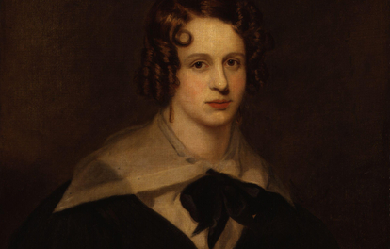
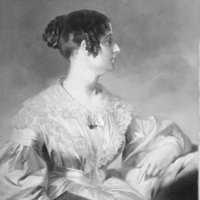
Felicia Dorothea Hemans (25 September 1793 – 16 May 1835) was an English poet. Her first poems, dedicated to the Prince of Wales, were published in Liverpool in 1808, when she was fourteen, arousing the interest of poet Percy Bysshe Shelley, who briefly corresponded with her. She quickly followed them up with “England and Spain” (1808) and “The Domestic Affections” (1812).

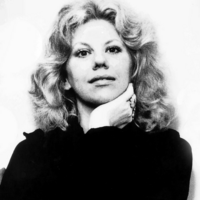
Erica Jong (née Mann; born March 26, 1942) is an American novelist and poet, known particularly for her 1973 novel Fear of Flying. The book became famously controversial for its attitudes towards female sexuality and figured prominently in the development of second-wave feminism. According to Washington Post, it has sold more than 20 million copies worldwide. Born in New York, she was the second of three daughters of Seymore Mann and Eda Mirsky. Attended New York’s Public High School of Music and Art in the 1950’s where she developed her passion for art and writing. As a student at Barnard College, she edited the Barnard Literary Magazine and created poetry programs for the Columbia University campus radio station.

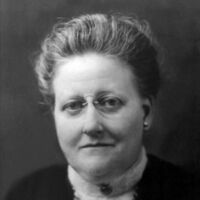
Amy Lawrence Lowell (February 9, 1874 – May 12, 1925) was an American poet of the imagist school from Brookline, Massachusetts, who posthumously won the Pulitzer Prize for Poetry in 1926. Amy was born into Brookline’s Lowell family, sister to astronomer Percival Lowell and Harvard president Abbott Lawrence Lowell. She never attended college because her family did not consider it proper for a woman to do so. She compensated for this lack with avid reading and near-obsessive book collecting. She lived as a socialite and travelled widely, turning to poetry in 1902 (age 28) after being inspired by a performance of Eleonora Duse in Europe.
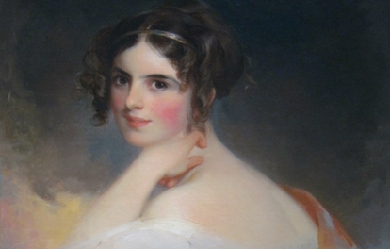
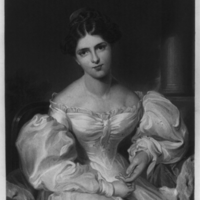
Frances Anne “Fanny” Kemble (27 November 1809– 15 January 1893) was a notable British actress from a theatre family in the early and mid-19th century. She was a well-known and popular writer, whose published works included plays, poetry, eleven volumes of memoirs, travel writing and works about the theatre.

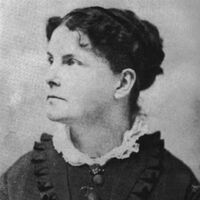
Celia Laighton Thaxter (June 29, 1835 – August 25, 1894) was an American writer of poetry and stories. She was born in Portsmouth, New Hampshire. Thaxter grew up in the Isles of Shoals, first on White Island, where her father, Thomas Laighton, was a lighthouse keeper, and then on Smuttynose and Appledore Islands. When she was sixteen, she married Levi Thaxter and moved to the mainland, residing first in Watertown, Massachusetts at a property his father owned. Celia died suddenly while on Appledore Island. She was buried not far from her cottage, which unfortunately burned in the 1914 fire that destroyed The Appledore House hotel.

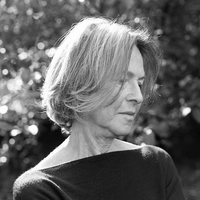
Louise Elisabeth Glück (born April 22, 1943) is an American poet. She was appointed Poet Laureate Consultant in Poetry to the Library of Congress in 2003. Louise was born in New York City of Hungarian Jewish heritage and grew up on Long Island. Her father, Daniel, an immigrant from Hungary, helped invent and market the X-Acto Knife. She graduated in 1961 from George W. Hewlett High School and went on to attend Sarah Lawrence College and later Columbia University; however, she did not graduate from either of them. Glück won the Pulitzer Prize for Poetry in 1993 for her collection The Wild Iris.
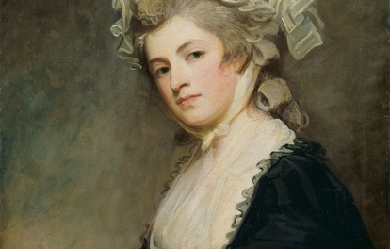
Mary Robinson (27 November 1757 – 26 December 1800) was an English actress, poet, dramatist, novelist, and celebrity figure born in Bristol. During her lifetime she was known as "the English Sappho". She earned her nickname "Perdita" for her role as Perdita (heroine of Shakespeare's The Winter's Tale) in 1779. She was the first public mistress of King George IV while he was still Prince of Wales.
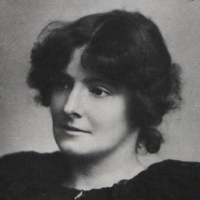
Edith Nesbit (married name Edith Bland; 15 August 1858 – 4 May 1924) was an English author and poet; she published her books for children under the name of E. Nesbit. She wrote or collaborated on more than 60 books of fiction for children. She was also a political activist and co-founded the Fabian Society, a socialist organisation later affiliated to the Labour Party.
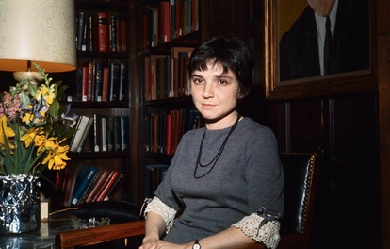
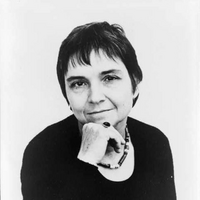
Adrienne Cecile Rich (May 16, 1929– March 27, 2012) was an American poet, essayist and radical feminist. She was called “one of the most widely read and influential poets of the second half of the 20th century”, and was credited with bringing “the oppression of women and lesbians to the forefront of poetic discourse.” Her first collection of poetry, A Change of World, was selected by renowned poet W. H. Auden for the Yale Series of Younger Poets Award. Auden went on to write the introduction to the published volume. She famously declined the National Medal of Arts, protesting the vote by House Speaker Newt Gingrich to end funding for the National Endowment for the Arts. Adrienne Rich was born in Baltimore, Maryland, the elder of two sisters. Her father, renowned pathologist Arnold Rice Rich, was the Chairman of Pathology at The Johns Hopkins Medical School. Her mother, Helen Elizabeth (Jones) Rich, was a concert pianist and a composer. Her father was from a Jewish family, and her mother was Southern Protestant; the girls were raised as Christians. Adrienne Rich’s early poetic influence stemmed from her father who encouraged her to read but also to write her own poetry. Her interest in literature was sparked within her father’s library where she read the work of writers such as Ibsen, Arnold, Blake, Keats, Rossetti, and Tennyson. Her father was ambitious for Adrienne and “planned to create a prodigy.” Adrienne Rich and her younger sister were home schooled by their mother until Adrienne began public education in the fourth grade. The poems Sources and After Dark document her relationship with her father, describing how she worked hard to fulfill her parents’ ambitions for her—moving into a world in which she was expected to excel.

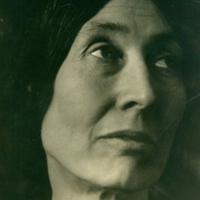
Lola Ridge, born Rose Emily Ridge (12 December 1873 Dublin—19 May 1941 Brooklyn) was an Irish-American anarchist poet and an influential editor of avant-garde, feminist, and Marxist publications. She is best remembered for her long poems and poetic sequences, published in numerous magazines and collected in five books of poetry. Along with other political poets of the early Modernist period, Ridge has received renewed critical attention since the beginning of the 21st century and is praised for making poetry directly from harsh urban life. A new selection of her poetry was published in 2007 and a biography in 2016.
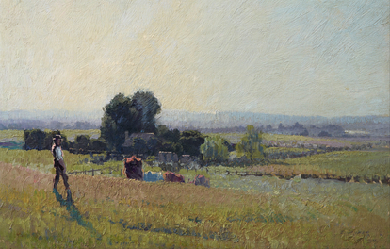
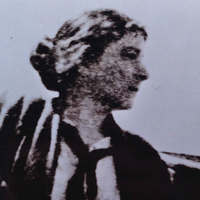
Lesbia Harford (1891–1927) was an Australian poetesse, novelist and political activist. Lesbia Venner Keogh was the first child of Edmund Joseph Keogh and Beatrice Eleanor Moore, great-great-granddaughter of an Earl of Drogheda. Lesbia was born at Brighton, Victoria, on 9 April 1891. Her father left home for Western Australia when his real estate business failed about 1900. Lesbia advocated free love in human relations. She herself formed lifelong parallel attachments to both men and women, most notably to Katie Lush, philosophy tutor at Ormond College.

Dinah Maria Craik (born Dinah Maria Mulock, also often credited as Miss Mulock or Mrs. Craik) (20 April 1826– 12 October 1887) was an English novelist and poet born at Stoke-on-Trent to Dinah and Thomas Mulock and raised in Newcastle-under-Lyme, Staffordshire, where her father was then minister of a small congregation. Her childhood and early youth were much affected by his unsettled fortunes, but she obtained a good education from various quarters and felt called to be a writer. Mulock’s early success began with the novel Cola Monti (1849), and in the same year she produced her first three-volume novel, The Ogilvies, to great success.

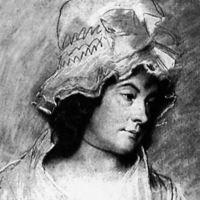
Charlotte Turner Smith (4 May 1749– 28 October 1806) was an English Romantic poet and novelist. She initiated a revival of the English sonnet, helped establish the conventions of Gothic fiction, and wrote political novels of sensibility. Smith was born into a wealthy family and received a typical education for a woman during the late 18th century. However, her father’s reckless spending forced her to marry early. In a marriage that she later described as prostitution, she was given by her father to the violent and profligate Benjamin Smith. Their marriage was deeply unhappy, although they had twelve children together. Charlotte joined Benjamin in debtor’s prison, where she wrote her first book of poetry, Elegiac Sonnets. Its success allowed her to help pay for Benjamin’s release. Benjamin’s father attempted to leave money to Charlotte and her children upon his death, but legal technicalities prevented her from ever acquiring it. Charlotte Smith eventually left Benjamin and began writing to support their children. Smith’s struggle to provide for her children and her frustrated attempts to gain legal protection as a woman provided themes for her poetry and novels; she included portraits of herself and her family in her novels as well as details about her life in her prefaces. Her early novels are exercises in aesthetic development, particularly of the Gothic and sentimentality. “The theme of her many sentimental and didactic novels was that of a badly married wife helped by a thoughtful sensible lover” (Smith’s entry in British Authors Before 1800: A Biographical Dictionary Ed. Stanley Kunitz and Howard Haycraft. New York: H.W. Wilson, 1952. pg. 478.) Her later novels, including The Old Manor House, often considered her best, support the ideals of the French Revolution. Smith was a successful writer, publishing ten novels, three books of poetry, four children’s books, and other assorted works, over the course of her career. She always saw herself as a poet first and foremost, however, as poetry was considered the most exalted form of literature at the time. Scholars credit Smith with transforming the sonnet into an expression of woeful sentiment that would pave the way for poets such as Coleridge, Wordsworth, Shelly and Keats. Smith’s poetry and prose was praised by contemporaries such as Romantic poets William Wordsworth and Samuel Taylor Coleridge as well as novelist Walter Scott. Coleridge, in 1796, even remarked that “those sonnets appear to me the most exquisite, in which moral Sentiments, Affections, or Feelings, are deduced from, and associated with the scenery of Nature”. After 1798, Smith’s popularity waned and by 1803 she was destitute and ill—she could barely hold a pen. She had to sell her books to pay off her debts. In 1806, Smith died. Largely forgotten by the middle of the 19th century, her works have now been republished and she is recognized as an important Romantic writer. Early life Smith was born on 4 May 1749 in London and baptized on 12 June; she was the oldest child of well-to-do Nicholas Turner and Anna Towers. Her two younger siblings, Nicholas and Catherine Ann, were born within the next five years. Smith’s childhood was shaped by her mother’s early death (probably in giving birth to Catherine) and her father’s reckless spending. After losing his wife, Nicholas Turner travelled and the children were raised by Lucy Towers, their maternal aunt (when exactly their father returned is unknown). At the age of six, Charlotte went to school in Chichester and took drawing lessons from the painter George Smith. Two years later, she, her aunt, and her sister moved to London and she attended a girls school in Kensington where she learned dancing, drawing, music, and acting. She loved to read and wrote poems, which her father encouraged. She even submitted a few to the Lady’s Magazine for publication, but they were not accepted. Marriage and first publication Smith’s father encountered financial difficulties upon his return to England and he was forced to sell some of the family’s holdings and to marry the wealthy Henrietta Meriton in 1765. Smith entered society at the age of twelve, leaving school and being tutored at home. On 23 February 1765, at the age of fifteen, she married Benjamin Smith, the son of Richard Smith, a wealthy West Indian merchant and a director of the East India Company. The proposal was accepted for her by her father; forty years later, Smith condemned her father’s action, which she wrote had turned her into a “legal prostitute”. Smith’s marriage was unhappy. She detested living in commercial Cheapside (the family later moved to Southgate and Tottenham) and argued with her in-laws, who she believed were unrefined and uneducated. They, in turn, mocked her for spending time reading, writing, and drawing. Even worse, Benjamin proved to be violent, unfaithful, and profligate. Only her father-in-law, Richard, appreciated her writing abilities, although he wanted her to use them to further his business interests. Richard Smith owned plantations in Barbados and he and his second wife brought five slaves to England, who, along with their descendants, were included as part of the family property in his will. Although Charlotte Smith later argued against slavery in works such as The Old Manor House (1793) and “Beachy Head”, she herself benefited from the income and slave labor of Richard Smith’s plantations. In 1766, Charlotte and Benjamin had their first child, who died the next year just days after the birth of their second, Benjamin Berney (1767–77). Between 1767 and 1785, the couple had ten more children: William Towers (born 1768), Charlotte Mary (born c. 1769), Braithwaite (born 1770), Nicholas Hankey (1771–1837), Married Anni Petroose (1779–1843), Charles Dyer (born 1773), Anna Augusta (1774–94), Lucy Eleanor (born 1776), Lionel (1778–1842), Harriet (born c. 1782), and George (born c. 1785). Only six of Smith’s children survived her. Smith assisted in the family business that her husband had abandoned by helping Richard Smith with his correspondence. She persuaded Richard to set Benjamin up as a gentleman farmer in Hampshire and lived with him at Lys Farm from 1774 until 1783. Worried about Charlotte’s future and that of his grandchildren and concerned that his son would continue his irresponsible ways, Richard Smith willed the majority of his property to Charlotte’s children. However, because he had drawn up the will himself, the documents contained legal problems. The inheritance, originally worth nearly £36,000, was tied up in chancery after his death in 1776 for almost forty years. Smith and her children saw little of it. (It has been proposed that this real case may have inspired the famous fictional case of Jarndyce and Jarndyce, in Dickens’s Bleak House.) In fact, Benjamin illegally spent at least a third of the legacy and ended up in King’s Bench Prison in December 1783. Smith moved in with him and it was in this environment that she wrote and published her first work, Elegiac Sonnets (1784). Elegiac Sonnets achieved instant success, allowing Charlotte to pay for their release from prison. Smith’s sonnets helped initiate a revival of the form and granted an aura of respectability to her later novels (poetry was considered the highest art form at the time). Smith revised Elegiac Poems several times over the years, eventually creating a two-volume work. Novelist After Benjamin Smith was released from prison, the entire family moved to Dieppe, France to avoid further creditors. Charlotte returned to negotiate with them, but failed to come to an agreement. She went back to France and in 1784 began translating works from French into English. In 1787 she published The Romance of Real Life, consisting of translated selections from François Gayot de Pitaval’s trials. She was forced to withdraw her other translation, Manon Lescaut, after it was argued that the work was immoral and plagiarized. In 1786, she published it anonymously. In 1785, the family returned to England and moved to Woolbeding House near Midhurst, Sussex. Smith’s relationship with her husband did not improve and on 15 April 1787, after twenty-two years of marriage, she left him. She wrote that she might “have been contented to reside in the same house with him”, had not “his temper been so capricious and often so cruel” that her “life was not safe”. When Charlotte left Benjamin, she did not secure a legal agreement that would protect her profits—he would have access to them under English primogeniture laws. Smith knew that her children’s future rested on a successful settlement of the lawsuit over her father-in-law’s will, therefore she made every effort to earn enough money to fund the suit and retain the family’s genteel status. Smith claimed the position of gentlewoman, signing herself “Charlotte Smith of Bignor Park” on the title page of Elegiac Sonnets. All of her works were published under her own name, “a daring decision” for a woman at the time. Her success as a poet allowed her to make this choice. Throughout her career, Smith identified herself as a poet. Although she published far more prose than poetry and her novels brought her more money and fame, she believed poetry would bring her respectability. As Sarah Zimmerman claimed in the Oxford Dictionary of National Biography, “She prized her verse for the role it gave her as a private woman whose sorrows were submitted only reluctantly to the public.” After separating from her husband, Smith moved to a town near Chichester and decided to write novels, as they would make her more money than poetry. Her first novel, Emmeline (1788), was a success, selling 1500 copies within months. She wrote nine more novels in the next ten years: Ethelinde (1789), Celestina (1791), Desmond (1792), The Old Manor House (1793), The Wanderings of Warwick (1794), The Banished Man (1794), Montalbert (1795), Marchmont (1796), and The Young Philosopher (1798). Smith began her career as a novelist during the 1780s at a time when women’s fiction was expected to focus on romance and to foreground “a chaste and flawless heroine subjected to repeated melodramatic distresses until reinstated in society by the virtuous hero”. Although Smith’s novels employed this structure, they also incorporated political commentary, particularly support of the French Revolution, through the voices of male characters. At times, she challenged the typical romance plot by including “narratives of female desire” or “tales of females suffering despotism”. Smith’s novels contributed to the development of Gothic fiction and the novel of sensibility. Smith’s novels are autobiographical. While a common device at the time, Antje Blank writes in The Literary Encyclopedia, “few exploited fiction’s potential of self-representation with such determination as Smith”. For example, Mr. and Mrs. Stafford in Emmeline are portraits of Charlotte and Benjamin. The prefaces to Smith’s novels told the story of her own struggles, including the deaths of several of her children. According to Zimmerman, "Smith mourned most publicly for her daughter Anna Augusta, who married an émigré... and died aged twenty in 1795." Smith’s prefaces positioned her as both a suffering sentimental heroine as well as a vocal critic of the laws that kept her and her children in poverty. Smith’s experiences prompted her to argue for legal reforms that would grant women more rights, making the case for these reforms through her novels. Smith’s stories showed the “legal, economic, and sexual exploitation” of women by marriage and property laws. Initially readers were swayed by her arguments and writers such as William Cowper patronized her. However, as the years passed, readers became exhausted by Smith’s stories of struggle and inequality. Public opinion shifted towards the view of poet Anna Seward, who argued that Smith was “vain” and “indelicate” for exposing her husband to “public contempt”. Smith moved frequently due to financial concerns and declining health. During the last twenty years of her life, she lived in: Chichester, Brighton, Storrington, Bath, Exmouth, Weymouth, Oxford, London, Frant, and Elstead. She eventually settled at Tilford, Surrey. Smith became involved with English radicals while she was living in Brighton from 1791 to 1793. Like them, she supported the French Revolution and its republican principles. Her epistolary novel Desmond tells the story of a man who journeys to revolutionary France and is convinced of the rightness of the revolution and contends that England should be reformed as well. The novel was published in June 1792, a year before France and England went to war and before the Reign of Terror began, which shocked the British public, turning them against the revolutionaries. Like many radicals, Smith criticized the French, but she still endorsed the original ideals of the revolution. In order to support her family, Smith had to sell her works, thus she was eventually forced to, as Blank claims, “tone down the radicalism that had characterised the authorial voice in Desmond and adopt more oblique techniques to express her libertarian ideals”. She therefore set her next novel, The Old Manor House (1793), during the American Revolutionary War, which allowed her to discuss democratic reform without directly addressing the French situation. However, in her last novel, The Young Philosopher (1798), Smith wrote a final piece of “outspoken radical fiction”. Smith’s protagonist leaves Britain for America, as there is no hope for a reform in Britain. The Old Manor House is "frequently deemed [Smith’s] best" novel for its sentimental themes and development of minor characters. Novelist Walter Scott labeled it as such and poet and critic Anna Laetitia Barbauld chose it for her anthology of The British Novelists (1810). As a successful novelist and poet, Smith communicated with famous artists and thinkers of the day, including musician Charles Burney (father of Frances Burney), poet Samuel Taylor Coleridge, scientist and poet Erasmus Darwin, lawyer and radical Thomas Erskine, novelist Mary Hays, playwright Richard Brinsley Sheridan, and poet Robert Southey. A wide array of periodicals reviewed her works, including the Anti-Jacobin Review, the Analytical Review, the British Critic, The Critical Review, the European Magazine, the Gentleman’s Magazine, the Monthly Magazine, and the Universal Magazine. Smith earned the most money between 1787 and 1798, after which she was no longer as popular; several reasons have been suggested for the public’s declining interest in Smith, including “a corresponding erosion of the quality of her work after so many years of literary labour, an eventual waning of readerly interest as she published, on average, one work per year for twenty-two years, and a controversy that attached to her public profile” as she wrote about the French revolution. Both radical and conservative periodicals criticized her novels about the revolution. Her insistence on pursuing the lawsuit over Richard Smith’s inheritance lost her several patrons. Also, her increasingly blunt prefaces made her less appealing to the public. In order to continue earning money, Smith began writing in less politically charged genres. She published a collection of tales, Letters of a Solitary Wanderer (1801–02) and the play What Is She? (1799, attributed). Her most successful new foray was into children’s literature: Rural Walks (1795), Rambles Farther (1796), Minor Morals (1798), and Conversations Introducing Poetry (1804). She also wrote two volumes of a history of England (1806) and A Natural History of Birds (1807, posthumous). She also returned to writing poetry and Beachy Head and Other Poems (1807) was published posthumously. Publishers did not pay as much for these works, however, and by 1803, Smith was poverty-stricken. She could barely afford food and had no coal. She even sold her beloved library of 500 books in order to pay off debts, but feared being sent to jail for the remaining £20. Illness and death Smith complained of gout for many years (it was probably rheumatoid arthritis), which made it increasingly difficult and painful for her to write. By the end of her life, it had almost paralyzed her. She wrote to a friend that she was “literally vegetating, for I have very little locomotive powers beyond those that appertain to a cauliflower”. On 23 February 1806, her husband died in a debtors’ prison and Smith finally received some of the money he owed her, but she was too ill to do anything with it. She died a few months later, on 28 October 1806, at Tilford and was buried at Stoke Church, Stoke Park, near Guildford. The lawsuit over her father-in-law’s estate was settled seven years later, on 22 April 1813, more than thirty-six years after Richard Smith’s death. Legacy Stuart Curran, the editor of Smith’s poems, has written that Smith is “the first poet in England whom in retrospect we would call Romantic”. She helped shape the “patterns of thought and conventions of style” for the period. Romantic poet William Wordsworth was the most affected by her works. He said of Smith in the 1830s that she was “a lady to whom English verse is under greater obligations than are likely to be either acknowledged or remembered”. By the second half of the 19th century, Smith was largely forgotten. Smith’s novels were republished again at the end of the 20th century, and “critics interested in the period’s women poets and prose writers, the Gothic novel, the historical novel, the social problem novel, and post-colonial studies” have argued for her significance as a writer. They looked to the contemporary documentation of her importance, discovering that she helped to revitalize the English sonnet, a fact recognized by Coleridge and others. Scott wrote that she “preserves in her landscapes the truth and precision of a painter” and poet and Barbauld claimed that Smith was the first to include sustained natural description in novels. It was not until 2008 however, that Smith’s entire prose collection became available to the general public. The edition contains each novel, the children’s stories and rural walks.

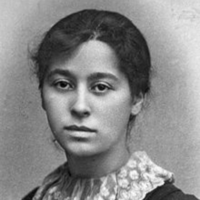
Amy Judith Levy (10 November 1861– 10 September 1889) was a British essayist, poet, and novelist best remembered for her literary gifts; her experience as the first Jewish woman at Cambridge University and as a pioneering woman student at Newnham College, Cambridge; her feminist positions; her friendships with others living what came later to be called a “new woman” life, some of whom were lesbians; and her relationships with both women and men in literary and politically activist circles in London during the 1880s. Biography Levy was born in Clapham, an affluent district of London, on November 10, 1861, to Lewis and Isobel Levy. She was the second of seven children born into a Jewish family with a “casual attitude toward religious observance” who sometimes attended a Reform synagogue in Upper Berkeley Street. As an adult, Levy continued to identify herself as Jewish and wrote for The Jewish Chronicle. Levy showed interest in literature from an early age. At 13, she wrote a criticism of Elizabeth Barrett Browning’s feminist work Aurora Leigh; at 14, Levy’s first poem, “Ida Grey: A Story of Woman’s Sacrifice”, was published in the journal Pelican. Her family was supportive of women’s education and encouraged Amy’s literary interests; in 1876, she was sent to Brighton and Hove High School and later studied at Newnham College, Cambridge. Levy was the first Jewish student at Newnham when she arrived in 1879 but left before her final year without taking her exams. Her circle of friends included Clementina Black, Dollie Radford, Eleanor Marx (daughter of Karl Marx), and Olive Schreiner. While travelling in Florence in 1886, Levy met Vernon Lee, a fiction writer and literary theorist six years her senior, and fell in love with her. Both women would go on to write works with themes of sapphic love. Lee inspired Levy’s poem “To Vernon Lee.” Literary career The Romance of a Shop (1888), Levy’s first novel, is regarded as an early “New Woman” novel and depicts four sisters who experience the difficulties and opportunities afforded to women running a business in 1880s London, Levy wrote her second novel, Reuben Sachs (1888), to fill the literary need for “serious treatment... of the complex problem of Jewish life and Jewish character”, which she identified and discussed in her 1886 article “The Jew in Fiction.” Levy wrote stories, essays, and poems for popular or literary periodicals; the stories “Cohen of Trinity” and “Wise in Their Generation”, both published in Oscar Wilde’s magazine The Woman’s World, are among her most notable. In 1886, Levy began writing a series of essays on Jewish culture and literature for The Jewish Chronicle, including The Ghetto at Florence, The Jew in Fiction, Jewish Humour, and Jewish Children. Levy’s works of poetry, including the daring A Ballad of Religion and Marriage, reveal her feminist concerns. Xantippe and Other Verses (1881) includes “Xantippe”, a poem in the voice of Socrates’s wife; the volume A Minor Poet and Other Verse (1884) includes more dramatic monologues as well as lyric poems. Her final book of poems, A London Plane-Tree (1889), contains lyrics that are among the first to show the influence of French symbolism. Suicide Levy suffered from episodes of major depression from an early age. In her later years, her depression worsened in connection to her distress surrounding her romantic relationships and her awareness of her growing deafness. Two months away from her 28th birthday, she committed suicide at the residence of her parents... [at] Endsleigh Gardens by inhaling carbon monoxide. Oscar Wilde wrote an obituary for her in Women’s World in which he praised her gifts.


